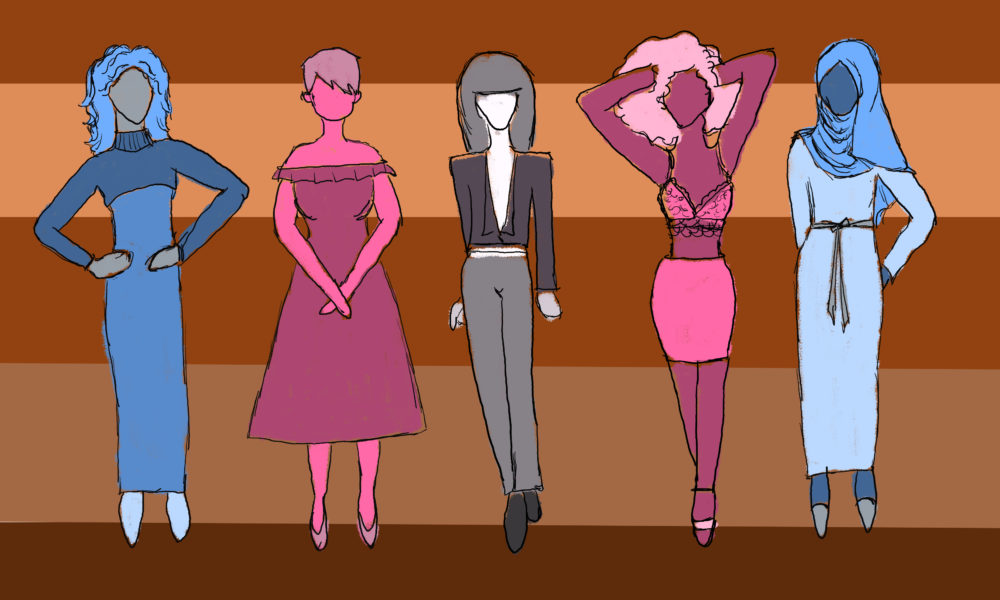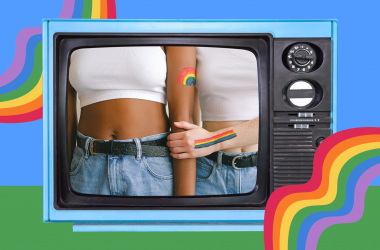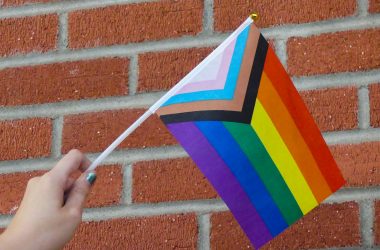Since the conception of the feminist movement, there’s been a valid critique of its monolithic approach to issues. For a long time, the standard definition of feminism only focused on white women’s experiences and progression.
In approaching feminism in the 21st century, it is crucial that all conversations must include intersectionality.
Though women’s experiences may hum the same melody, each individual’s experiences and identity are distorted notes, completely changing the song. If we truly hope to honor and uplift all women, we must listen to all of their songs.
Historically, members of the feminist movement who were regarded as equal rights pioneers for women such as Elizabeth Cady Stanton and Susan B. Anthony were later exposed to have solely focused on the progression of white women and held racist beliefs. Though it’s clearly hypocritical to be fighting oppression for your gender while perpetuating oppression through racism, this is a common paradox women of color face in the feminist movement to this day.
The definition of feminism is “the advocacy of women’s rights on the basis of the equality of the sexes.” Though the movement aims to uplift women’s voices and unify our struggles, the basis of it is equality and equality must appear on all fronts.
Though universal women’s issues include sexual harassment, unequal wages, and societal views and expectations, this is only the surface. Every woman who is a part of a minority experiences complex issues that combine modes of oppression to constrain women further.
“All inequality is not created equal,” American law professor Kimberlé Crenshaw said.
When addressing inequality through the feminist lens, we must remember the myriad of factors at play perpetuating oppression.
It’s important to realize that inequality faced by women is not only a gender issue—but also a result of differences in race, sexuality, class and immigration status.
It is impossible to attempt to uplift women while simultaneously denying the part that their race plays in their experiences. Black women, like Breonna Taylor, are being murdered by the police at alarming rates, a fear white women don’t experience. Latin American women are being separated from their babies at the border. Asian American women are being harassed and assaulted nationwide.
But intersectionality goes beyond race. You cannot claim to want to fight for women’s rights while contributing to the marginalization of trans women.
Actively barring trans women from the feminist movement contributes to the myth that they are dangerous. That they are predatory men pretending to be women. That they don’t belong in the world.
This mindset leads to violence.
How can you call yourself a feminist if you further the narrative that led to the death of Alexandria Winchester? Of Courtney Key? Of Aerrion Burnett? Of Tracy Green? Or any of the 350 transgender people in 75 countries who were killed between October 2019 and the end of September 2020?
The life expectancy of trans women in the United States ranges from 30 to 35, while that of cisgender people is 78. The risk of being killed is even higher if the trans person is a person of color.
Audre Lorde, a Black lesbian feminist, famously said, “I am not free while any woman is unfree, even when her shackles are very different from my own.”
We must advocate for all our sisters, whether having experienced their same oppressions or not. We must care equally for the issues we haven’t experienced as we do the issues plaguing our own existence.
Any woman’s issue is a feminist issue. All of these issues need to be met with the same level of compassion and concern as you’d like your own issues to be met.
To truly embark on a pursuit of equality among all, we must recognize the differences in the oppressions limiting us instead of acting as if our experiences are one-note. Though our experiences are different, the goal of the feminist movement is the same: equality among all sexes.
Special projects editor Peter Villafane contributed to this article.




